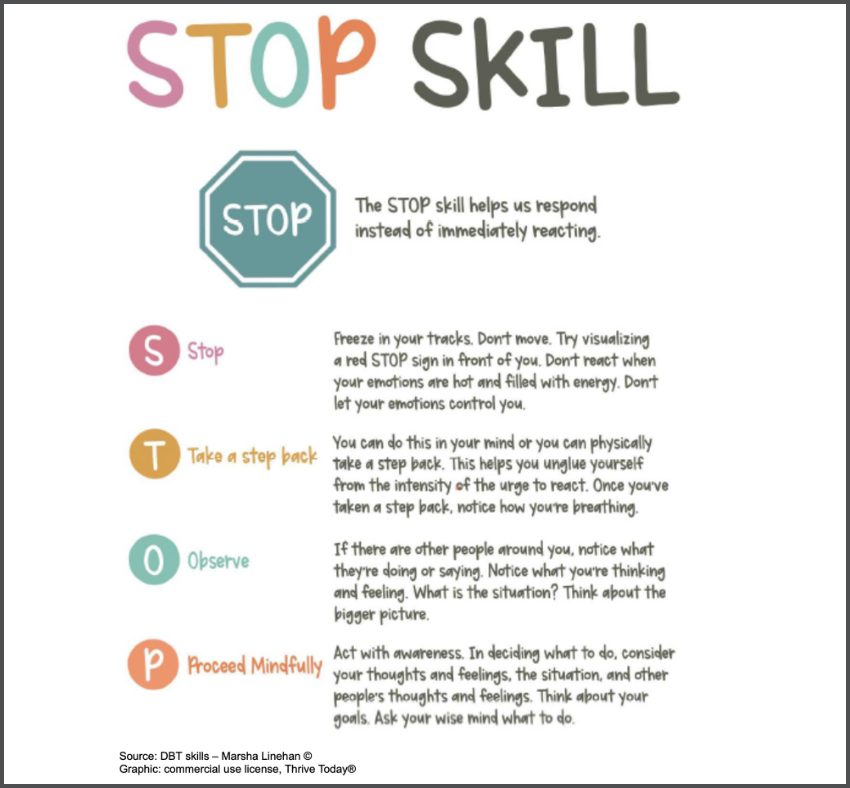by Susan West, LCMHC
Adult Community Services Supervisor
You may have heard about dialectical behavior therapy (DBT) skills and wondered “What is DBT and what can it do for me?” DBT focuses on helping people accept the reality of their lives and their behaviors, as well as helping them learn to make changes in their lives, including identifying and changing their own unhelpful behaviors.
Do any of these statements ring true for you? You feel the need to:
Stop blowing up at other people (and then feeling horrible about yourself afterwards).
This means you need to slow down and stop yourself before you’re so emotional that you can’t stop yourself. This might mean you never learned how to communicate without arguing; is that how your parents communicated?
Stop negative self-talk.
This can mean you started life with others neglecting you or telling you that you didn’t belong, weren’t a good kid and worse. Negative thinking becomes a habit, so we work on changing to positive self-talk and finding ways to prove to yourself what a good person you are.

Examples of an urge could be anger causing you to want to fight or fear leading to the urge to run from a situation perhaps over a disagreement with someone. Similar to negative self-talk, how can we feel the urge, and let it pass by? Or do we distract ourselves?
The STOP skill is a great place to start.
STOP is what it sounds like; we practice so that you can STOP in your tracks and slow down your mind and feelings, before you speak.
Ways to start: imagine a red STOP sign; wear an elastic band on your wrist and snap it when you feel yourself getting revved up; physically take a step back from the person you’re talking to; go into another room and return when you’re settled down. Find a way to stop in your tracks – that’s it.
Now take a few deep breaths. Breathe in for 4, hold for a count of 5, and breathe out for 6 or more. This will slow down your body which then helps cool your emotions.
Now that you’re less emotional, what do you want to get from this conversation. Say it aloud. Get comfortable with the words. Return to the conversation and say that first. If you get riled up again, step away, cool off and return.
4 ways to cool your emotions so you can ‘think straight’
1. Run in place
2. Take a walk
3. Splash cold water on your face 3-5 times
4. Hold a frozen orange
Any of these “TIP” skills will change what’s going on in your body which then helps your mind to slow down and your feelings to cool off.
